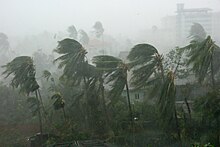Mostly, write, every day. But a long-term plan might be of benefit. I'll invent one, and you can adapt it for your own life.
Summer holiday from school this year, write 500 words per day, every day. If it's a great writing day, maybe you'll write 2000 words. Terrific! But if it's a bad day/you're not in the mood/something fun is happening outside the window, draw the blinds and write the 500 words anyway. Do this every day, even on the days it feels as easy as tap-dancing on a water bed. Professional writers write on the good days and difficult days, and it's a good habit to get into. Three months, 500 words a day, a few days better than 500: that's a novel draft. Don't fall into the trap of saying "I'll write one hour" as your goal. Set a word goal and write until you meet it.
Summer holiday from school this year, write 500 words per day, every day. If it's a great writing day, maybe you'll write 2000 words. Terrific! But if it's a bad day/you're not in the mood/something fun is happening outside the window, draw the blinds and write the 500 words anyway. Do this every day, even on the days it feels as easy as tap-dancing on a water bed. Professional writers write on the good days and difficult days, and it's a good habit to get into. Three months, 500 words a day, a few days better than 500: that's a novel draft. Don't fall into the trap of saying "I'll write one hour" as your goal. Set a word goal and write until you meet it.
The first half of the following school year, rewrite the
novel on weekends, and then put it aside at winter break, however far you've gone with the rewrite. Do not upload it to Amazon KDP at this point--you'll regret it if you do. You don't have nearly enough writing
experience yet to be able to produce a readable--much less a good--novel that
quickly. And experienced writers know it will take more than one revision, and perhaps years of revising, to get to the finish line.
The second half of that school year, on your weekends, plan
and research your next novel, read how-to writing articles online, and read
how-to books from the library, 808 and nearby in the Dewey Decimal system. Read
the award-winning novels from this year in your genre, too.
Hey, it's already summer again--happy times! Time, too, to draft your second novel, 500 words per day. Repeat this schedule every year
right through your university years. Do not get a writing or literature degree
at university. Get a degree that will allow you a decent-paying job. (No, this
isn't your dad writing this post, even if I sound like him right now.) Writing is unlikely to ever be a decent-paying job, and having a degree in it won't impress agents and editors.
Six years from today, if you follow this plan, you will have six novel
drafts and a university degree. Impressive! While you're job hunting (yes, you will still
need a normal job), get out your completed novels and read them in order.
Do any of the ideas still sing to you? Is one novel showing a
spark of real promise? Or was this all simply good practice, not fit for public
display? Any of these answers is fine, and even if none of those first books is
very good, you may still become a successful writer in a few years more of
study and practice. Every writer has had the experience of pulling out something they wrote a few years ago and recoiling in horror at it, so know you aren't alone in that feeling.
In addition to the practice you've put in at your craft in
these years, you've been having important life experiences. Romances, financial woes, friends dying or betraying you, and much more l will fuel your knowledge of the human experience, and some
incidents will become good fodder for future novels.
A few cautions:
Try to not need approval for every paragraph you write. It's a solitary act, writing--and that's part of its joy.
If you don't think you can take rejection and harsh critique yet, don't show your work to anyone, and particularly not to strangers online.
Keep your expectations for becoming a professional realistic (The average age of writers on the best seller lists is over 50 years old, and most of those best sellers were the the tenth--or twentieth--published book for that author.)
If you don't think you can take rejection and harsh critique yet, don't show your work to anyone, and particularly not to strangers online.
Keep your expectations for becoming a professional realistic (The average age of writers on the best seller lists is over 50 years old, and most of those best sellers were the the tenth--or twentieth--published book for that author.)











.jpg)